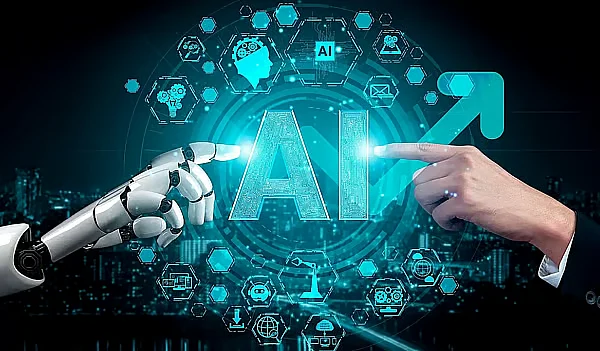
'Half World Can't Access AI': Tech Leaders Call For Inclusion, Warn Of Economic Disruption
Artificial intelligence is transforming global productivity, but nearly half the world's population remains unable to use it because they lack electricity, internet, or digital skills.
“There's 8.1 billion people in the world, but 700 million don't have electricity,” warned Microsoft President Brad Smith at the Abu Dhabi Global AI Summit on Sunday.“Add those without internet, and now 2.6 billion can't use AI. Add those without digital skills, and it's 3.9 billion - roughly half the world can't access or use AI.”
Recommended For You Dubai: Gold prices climb slightly; analysts predict bullish marketSmith described this as“the most urgent digital divide of our time", saying AI diffusion must begin with basic infrastructure.“We cannot democratise AI until everyone is connected.”
Stay up to date with the latest news. Follow KT on WhatsApp Channels.
He added that the UAE stands out as a global model for rapid and responsible AI adoption.“We are in the global capital today of AI adoption. The UAE leads the world with roughly a 59 per cent per capita adoption rate. Singapore is number two.” Microsoft's global data shows the UAE ahead of many developed nations in AI use, thanks to early government investment in digital skills and infrastructure, he added.
Coalition among governmentsAt the same panel, Ian Bremmer, President of the Eurasia Group, warned that access disparities are now becoming geopolitical.“AI is geopolitical by design,” Bremmer said.“If you want to reach the Sustainable Development Goals, this is the bet the world is making. But the question is - who is in charge of the algorithms?”
Bremmer urged a“coalition of the willing” among governments and technology firms to ensure AI serves humanity rather than dividing it.
“We need global governance around AI. It can't be a rivalry between China and the United States. You need a coalition prepared to stand up for this form of governance.” Both speakers pointed to the UAE's balancing role as an emerging model of inclusion.“The UAE will be a piece of that,” Bremmer added.
'Cost of intelligence'The future of artificial intelligence will be determined by energy capacity, not computing power, according to Peng Xiao, CEO of G42, who warned that the world's ability to scale AI is“locked” by limited energy supply.“Eventually the cost of intelligence will become the cost of energy. This is the single most important factor in AI diffusion.”
He noted that even advanced economies face this constraint.“In the US, energy is now the major lock for unleashing the power of AI.”
G42, he said, is building up to five gigawatts of AI computing capacity in Abu Dhabi - enough to serve regional and global AI demand.“We are investing heavily in high-performance computing powered by clean energy. The UAE has the right foundation to make AI accessible at scale.”
Xiao said energy-efficient infrastructure will determine which nations can lead in developing and exporting AI intelligence.“Countries with abundant, sustainable energy will hold the key to intelligence production.”
AI will hit white-collar jobsArtificial intelligence could reverse decades of global“brain drain” by allowing innovators to build startups from their home countries - but it will also unleash economic disruption across white-collar professions, said Baroness Joanna Shields, founder and CEO of the Responsible AI Foundation.
AI“is a civilization uplift moment” that could decentralise opportunity.“The best talent used to move to Silicon Valley,” she explained.“Now the best and brightest can stay home and build startups locally.” She argued that the technology's true potential lies in empowering developing markets.“Responsible AI is about empowering everyone equally and enabling others to level up and be part of this revolution.”
However, Bremmer cautioned that the next wave of disruption will affect professionals previously insulated from automation -“coming real soon to a theatre near you... it's advanced degree, white-collar, urban, suburban, and women - their kids graduating won't have the same opportunities.”
He warned that governments must anticipate this shift before it translates into social instability.“We're going to have to get ahead of this before it becomes the next populist shock.”
Both Shields and Bremmer agreed that proactive policies - like the UAE's national AI strategy and investment in education - can turn these disruptions into opportunity rather than loss.

Legal Disclaimer:
MENAFN provides the
information “as is” without warranty of any kind. We do not accept
any responsibility or liability for the accuracy, content, images,
videos, licenses, completeness, legality, or reliability of the information
contained in this article. If you have any complaints or copyright
issues related to this article, kindly contact the provider above.

















Comments
No comment